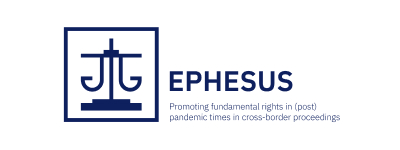
ARISA Child
Assessing the Risk of Isolation of Sentenced and Accused: Enhancing the Capacity of Correctional Services to Work with Convicted Children

Fair predictions of gender-sensitive recidivism
Timeframe
06/2024 – 05/2026 (24 months)
Get in touch

FAIR-PReSONS project will develop a bias-free AI system for the fair prediction of recidivism, emphasising gender equality perspective, conforming to EU legislation for non-discriminative AI. To do so, FAIR-PReSONS will first conduct a gender analysis, which maps the potential different impact of the project and its activities on women and men as well as girls and boys in all their diversity.
To accomplish these two goals, FAIR-PReSONS will systematically collect related data (e.g., release papers) from prisons and criminal justice organisations, digitise and document it with appropriate metadata/semantics following EU standards.

Contribute to the understanding of bias-free AI (machine learning) algorithms used for predictions.
Minimize the risk of algorithmic discrimination, in particular in relation to the development of AI systems for supporting the decision-making of judges in recidivism prediction.
Address biases inherent in the data and algorithms used for delinquency and recidivism analysis.
Contribute to the ethical use of AI systems in the justice sector.
A bias-free AI system for the fair prediction of recidivism, emphasising gender equality perspective.
Digitalised data from prisons and offence management systems (OMS) from each involved country.
Report on the relevance of gender and other sensitive characteristics in criminal proceedings.
Code of conduct for legal professionals in the use of AI.
Training judges and other legal professionals on the use of the bias-free AI system.

Assessing the Risk of Isolation of Sentenced and Accused: Enhancing the Capacity of Correctional Services to Work with Convicted Children

European Arrest Warrant

Empowerment of the Framework Decisions 2008/947 and 2009/829 through EU Probation Services

Promoting fundamental rights in (post) pandemic times in cross-border proceedings

Ensuring Probationers’ Rehabilitation Prospects via targeted enhancement of the implementation of FD 2008/947

Implementation of the Stockholm’s Roadmap in cases of terrorism and radicalisation

Ensuring the due course of criminal proceedings via strengthened respect for the procedural rights of the suspect and the accused

Judicial cooperation for the enhancement of mutual recognition regarding probation measures and alternative sanctions – EPP software 3.0

Judicial cooperation for the enhancement of mutual recognition regarding probation measures and alternative sanctions